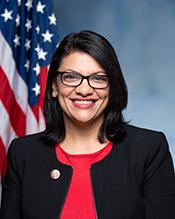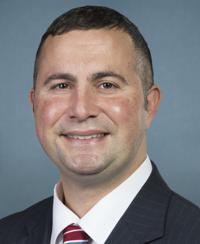0
0
0
Stay Cool Act
12/29/2022, 5:03 PM
Summary of Bill HR 7949
Bill 117 hr 7949, also known as the Stay Cool Act, is a piece of legislation currently being considered by the US Congress. The main goal of this bill is to address the issue of extreme heat and its impact on public health and safety.
The Stay Cool Act proposes several measures to help communities better prepare for and respond to extreme heat events. One key provision of the bill is the establishment of a grant program to assist states and localities in developing and implementing heat action plans. These plans would outline strategies for reducing the risks associated with extreme heat, such as providing cooling centers and implementing heat warning systems.
Additionally, the Stay Cool Act calls for increased research and data collection on the health effects of extreme heat, as well as the development of best practices for protecting vulnerable populations, such as the elderly and low-income individuals. The bill also aims to improve coordination between federal, state, and local agencies in responding to heat emergencies. Overall, the Stay Cool Act seeks to address the growing threat of extreme heat in a comprehensive and proactive manner. By providing resources and guidance to communities, this legislation aims to reduce the impact of extreme heat events on public health and safety.
The Stay Cool Act proposes several measures to help communities better prepare for and respond to extreme heat events. One key provision of the bill is the establishment of a grant program to assist states and localities in developing and implementing heat action plans. These plans would outline strategies for reducing the risks associated with extreme heat, such as providing cooling centers and implementing heat warning systems.
Additionally, the Stay Cool Act calls for increased research and data collection on the health effects of extreme heat, as well as the development of best practices for protecting vulnerable populations, such as the elderly and low-income individuals. The bill also aims to improve coordination between federal, state, and local agencies in responding to heat emergencies. Overall, the Stay Cool Act seeks to address the growing threat of extreme heat in a comprehensive and proactive manner. By providing resources and guidance to communities, this legislation aims to reduce the impact of extreme heat events on public health and safety.
Congressional Summary of HR 7949
Stay Cool Act
This bill addresses risks associated with extreme heat, including through grants and activities that support (1) public preparedness and response to heat emergencies, (2) community-based interventions (e.g., cooling centers), (3) air conditioning and other cooling mechanisms in federally assisted housing, and (4) urban green spaces and vegetation.
Read the Full Bill
Current Status of Bill HR 7949
Bill HR 7949 is currently in the status of Bill Introduced since June 3, 2022. Bill HR 7949 was introduced during Congress 117 and was introduced to the House on June 3, 2022. Bill HR 7949's most recent activity was Referred to the Committee on Financial Services, and in addition to the Committees on Science, Space, and Technology, Energy and Commerce, Ways and Means, and Education and Labor, for a period to be subsequently determined by the Speaker, in each case for consideration of such provisions as fall within the jurisdiction of the committee concerned. as of June 3, 2022
Bipartisan Support of Bill HR 7949
Total Number of Sponsors
1Democrat Sponsors
1Republican Sponsors
0Unaffiliated Sponsors
0Total Number of Cosponsors
44Democrat Cosponsors
44Republican Cosponsors
0Unaffiliated Cosponsors
0Policy Area and Potential Impact of Bill HR 7949
Primary Policy Focus
Housing and Community DevelopmentAlternate Title(s) of Bill HR 7949
Stay Cool Act
Stay Cool Act
To improve response to, and preparation for, heat waves and extreme heat, and for other purposes.
Comments
Sponsors and Cosponsors of HR 7949
Latest Bills
Providing for congressional disapproval under chapter 8 of title 5, United States Code, of the rule submitted by the Bureau of Land Management relating to "Central Yukon Record of Decision and Approved Resource Management Plan".
Bill HJRES 106December 12, 2025
Providing for congressional disapproval under chapter 8 of title 5, United States Code, of the rule submitted by the Bureau of Land Management relating to "North Dakota Field Office Record of Decision and Approved Resource Management Plan".
Bill HJRES 105December 12, 2025
Holocaust Expropriated Art Recovery Act of 2025
Bill S 1884December 12, 2025
Providing for congressional disapproval under chapter 8 of title 5, United States Code, of the rule submitted by the Bureau of Land Management relating to "Miles City Field Office Record of Decision and Approved Resource Management Plan Amendment".
Bill HJRES 104December 12, 2025
Enduring Justice for Victims of Trafficking Act
Bill S 2584December 12, 2025
National Defense Authorization Act for Fiscal Year 2026
Bill S 1071December 12, 2025
Technical Corrections to the Northwestern New Mexico Rural Water Projects Act, Taos Pueblo Indian Water Rights Settlement Act, and Aamodt Litigation Settlement Act
Bill S 640December 12, 2025
Department of Defense Appropriations Act, 2026
Bill HR 4016December 12, 2025
End the Fed’s Big Bank Bailout Act
Bill S 2113December 12, 2025
Federal Reserve Transparency Act of 2025
Bill S 2327December 12, 2025
Saving Hazardous And Declining Environments Act
Bill HR 4166December 31, 2022




